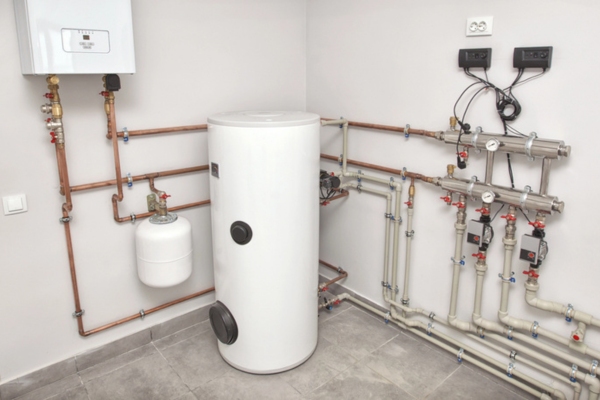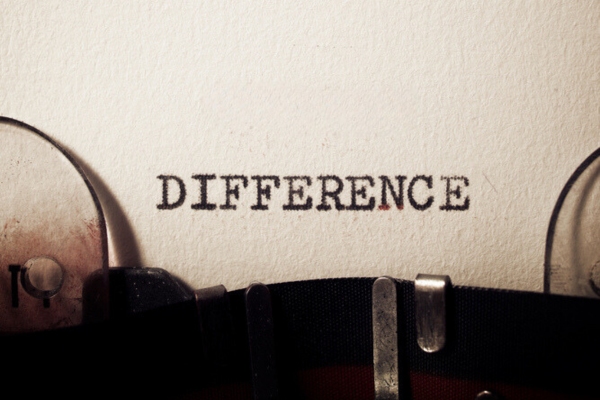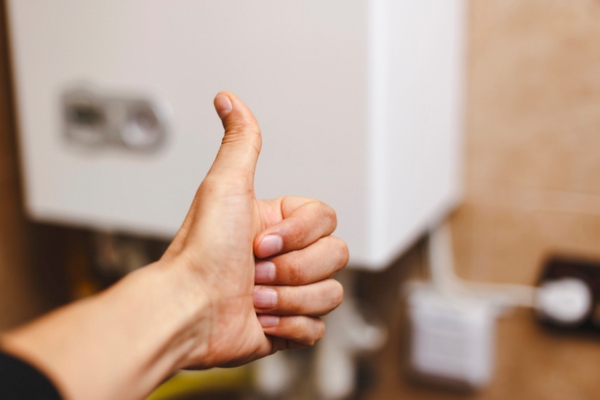Selecting the ideal boiler is vital to maximizing your heating efficiency. The market offers a variety of models, and understanding each type’s unique benefits is vital. At Tevis Energy, we offer unsurpassable HVAC solutions, delivering expert advice and superior service. This article will inform homeowners and businesses about the distinct advantages of condensing vs. non-condensing boilers, guiding you to the right choice for your heating requirements. Join us as we explore the realm of boilers and learn how Tevis Energy can help you make the most informed decision for your space.
Understanding Boilers

At the core of numerous heating systems, boilers are vital components that bring warmth to residential and commercial settings. Fundamentally, a boiler functions by heating water or other fluids to create steam or hot water for heating purposes. This heated fluid circulates through systems like radiators or underfloor heating, ensuring even distribution of heat across different areas.
The history of boiler technology reflects a path of constant innovation and enhancement. Beginning with simple, coal-fired designs, boilers have significantly evolved into today’s sophisticated, energy-efficient models. This development has been propelled by advancements in materials, design, and technology, yielding heating solutions that are more effective, safer, and environmentally friendly. As we examine the differences between condensing and non-condensing boilers, we must recognize each as a pivotal step in this continuous journey of technological progress.
Schedule your HVAC service with Tevis Energy today and experience top-notch comfort in your home. Contact us today!
What are Non-Condensing Boilers?
Non-condensing boilers represent a conventional approach to heating, where fuel is burned to heat water. This process emits hot flue gases expelled through a chimney, resulting in heat loss. In contrast to condensing boilers, non-condensing types do not recycle this heat, which makes them comparatively less efficient.
Common boiler types include conventional boilers, ideal for homes with high water demands due to their separate hot water cylinder and storage tanks. System boilers integrate most components, saving space, while combi boilers deliver heating and hot water directly, making them perfect for smaller spaces.
Non-condensing boilers are appreciated for their straightforward design, ease of maintenance, and cost-effectiveness, especially in older structures. Yet, their energy efficiency levels, typically between 80-90%, contribute to higher operational expenses and a more substantial environmental footprint than condensing boilers. Tevis Energy advises weighing these factors alongside your specific requirements and the long-term advantages of opting for a more efficient system when selecting a boiler.
Exploring Condensing Boilers
Condensing boilers represent a contemporary, highly efficient boiler type. Their defining characteristic is the ability to capture and recycle heat from water vapor in exhaust gases, distinguishing them from their non-condensing counterparts. This capability enables condensing boilers to reach 90% or higher efficiencies, enhancing their effectiveness in converting fuel to usable heat. Including a condenser and an additional heat exchanger is integral to achieving this elevated efficiency.
While condensing boilers may have a higher initial cost and sometimes require modifications like a new flue system, their long-term advantages are substantial. These boilers help decrease energy bills and contribute to environmental conservation by emitting fewer greenhouse gases. Tevis Energy recommends considering these benefits in conjunction with your heating needs and the current system configuration to assess whether a condensing boiler is a prudent investment for your requirements.
Book a consultation with Tevis Energy to ensure your HVAC system is running at peak efficiency. Call today!
Comparative Analysis: Condensing vs. Non-Condensing Boilers

Let’s explore the differences between condensing and non-condensing boilers to better understand which might suit your heating needs best.
Non-Condensing Boilers
Non-condensing boilers are well-suited for areas with low water pressure or properties that benefit from straightforward installations. They are initially more cost-effective and easier to set up, particularly in older structures. These boilers generally achieve efficiencies between 80% and 90%, with some heat loss occurring through the flue gases. Despite their lower efficiency leading to a larger environmental impact, they are easier to maintain.
Reach out to Tevis Energy for reliable HVAC repairs and maintenance that keep your home comfortable. Call now!
Condensing Boilers
Condensing boilers are ideal for individuals who prioritize energy efficiency. They are suitable for various climates and capable of achieving efficiencies over 90% by reclaiming heat from exhaust gases. Though they come with higher initial costs and might necessitate more comprehensive installation and maintenance, their long-term cost-effectiveness and reduced environmental impact, owing to lower greenhouse gas emissions, make them a favorable choice.
Both boiler types provide comparable lifespans and durability, and Tevis Energy can help determine the most suitable option based on local conditions and specific needs.
Choosing the Best Boiler for Your Heating Needs

Selecting the appropriate boiler for your property involves considering factors like the building size, local climate, and budget constraints. Larger spaces generally need a more robust boiler, and in chillier climates, an efficient model like a condensing boiler may offer cost savings over the long term. While condensing boilers have higher initial costs, their potential for long-term savings and efficiency can make them a worthwhile investment.
Tevis Energy assists in this selection process by evaluating your property’s size, insulation quality, heating requirements, and local climate conditions. Our experts conduct a thorough cost-benefit analysis to ensure that the boiler you choose aligns with your immediate budget and long-term financial objectives.
With Tevis Energy’s expertise, selecting the right boiler becomes a simplified and personalized process designed to meet your specific needs and guarantee maximum comfort and efficiency in your home or business.
Boiler Maintenance & Care Tips
Consistent maintenance is crucial for condensing and non-condensing boilers to operate efficiently and last longer. Here are some essential guidelines and tips:
- Annual Boiler Servicing: Have your boiler serviced annually by a qualified technician, such as those from Tevis Energy. This yearly checkup should include cleaning, inspecting, and testing all components to verify they are in proper working order.
- Check the Boiler Pressure: Check the boiler’s pressure gauge regularly. Low pressure may suggest leaks or other malfunctions, whereas high pressure can put undue stress on your boiler system.
- Inspect for Boiler Leaks: Routinely check around and underneath your boiler for any signs of water leaks, as these could point to underlying issues.
- Keep Vents and Flues Clear: It’s crucial to ensure that all vents and flues remain clear to maintain proper airflow and efficiency.
- Monitor for Strange Boiler Noises: Listen for any unusual noises from the boiler, which could be symptoms of air in the system or scale accumulation.
Tips for Prolonging Boiler Life & Maintaining Efficiency

Here are some practical tips to extend your boiler’s service life and maintain its efficiency:
- Bleed Radiators: Annually bleeding your radiators helps eliminate air pockets that can decrease heating efficiency.
- Maintain Good Water Quality: Keeping the water in your boiler clean is crucial. Hard water may lead to scale buildup, which diminishes efficiency. Installing a water softener may be beneficial if needed.
- Insulate Pipes: Insulating your boiler’s pipes is essential to prevent heat loss and protect against freezing during the colder months.
- Upgrade Thermostats and Controls: Upgrading to smart thermostats and programmable controls can enhance the efficiency of your boiler’s operation.
- Regular Boiler Cleaning: Keep the area around the boiler and its immediate area clean to prevent dust and debris from accumulating.
Tevis Energy provides comprehensive maintenance services and offers tailored advice for caring for your specific boiler model. Consistent maintenance extends the life of your boiler and ensures it operates at optimal efficiency, reducing costs and maintaining a comfortable environment.
Condensing Vs. Non-Condensing Boiler FAQs
Here are several common queries regarding condensing vs. non-condensing boilers:
What Are The Installation Considerations For Condensing Boilers?
Condensing boilers may come with unique installation demands due to their need to manage condensate and potential changes in flue configurations. It’s critical to engage a professional to fully understand these requirements and confirm that your space accommodates a condensing boiler installation properly.
How Do The Operating Costs Of Condensing Boilers Compare To Non-Condensing Boilers?
Although condensing boilers carry a higher initial cost, their superior efficiency during operation can result in substantial energy savings over time. These savings can compensate for the upfront expense through lower energy bills, particularly in regions with colder climates and higher heating requirements.
Do Condensing Boilers Have Special Maintenance Requirements?
Condensing boilers often necessitate specific maintenance routines because of their intricate internal components, such as the condenser and second heat exchanger. Regular checkups and maintenance performed by a qualified technician are crucial to maintaining optimal performance and addressing potential issues with condensate drainage and flue integrity.
Can Condensing Boilers Work With Existing Radiator Systems?
Generally, condensing boilers are compatible with existing radiator systems. However, it may be necessary to evaluate and potentially upgrade certain elements of the radiator system to fully benefit from the efficiency improvements provided by a condensing boiler.
What Is The Environmental Impact Of Condensing Boilers Compared To Non-Condensing Boilers?
Condensing boilers are more environmentally beneficial than non-condensing boilers as they utilize a greater portion of the fuel burned to produce usable heat, reducing their carbon footprint. By recycling heat that would typically be lost, condensing boilers also lower greenhouse gas emissions, establishing them as a more eco-friendly option for heating.
Conclusion
Choosing between condensing and non-condensing boilers involves understanding their efficiency, cost, environmental impact, and fit for your needs. Condensing boilers offer greater efficiency and environmental benefits, while non-condensing boilers are simpler and less expensive initially. Consider long-term savings and compatibility with your heating needs. For expert advice and comprehensive solutions, contact Tevis Energy. Our expertise ensures you make the best decision for your heating requirements.
Tevis Energy’s sister company, Modern Comfort, performs HVAC installations, heating and cooling replacements, repairs, tune-ups, and more. Our technicians can provide expert HVAC services to ensure that your system provides the comfort and efficiency you deserve. Contact us now to schedule an appointment.
Call Tevis Energy For All Of Your HVAC Needs
Reach out to Tevis Energy for superior heating and cooling services throughout central Maryland and southern Pennsylvania. Our team comprises highly trained, certified technicians equipped to handle HVAC tune-ups, repairs, installations, replacements, and more! Each technician offers knowledge and experience to service your HVAC system effectively.
We pride ourselves on offering the area’s most competitive heating and cooling service rates. Our maintenance services can boost your comfort and energy efficiency, reducing your home’s heating and cooling costs. If you need an HVAC repair or a new system, we can recommend the optimal solution that fits your needs and budget. We stand behind our work with a satisfaction guarantee. Call Tevis Energy today to arrange a service appointment and receive a free, in-home estimate.
You can click here to contact us now or call us at (410) 876-6800 to find out more! Click the link to view our service area.

Related Articles:
